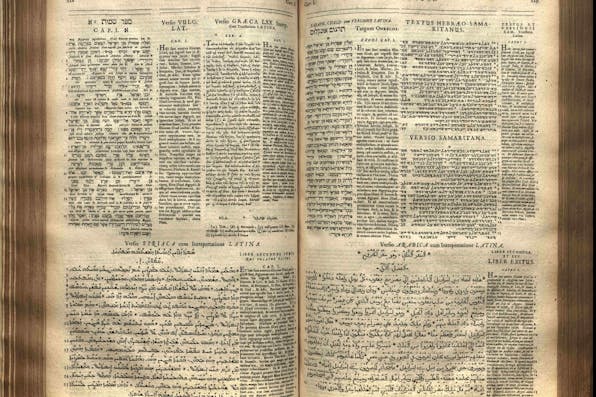
July 26, 2017
Why Biblical Scholars Should Declare Their Worldviews
Biblical criticism is never value-free. In itself that's not a problem; the problem arises when readers don't know what worldview a particular scholar brings to his or her work.
I am very grateful for Joshua Berman’s essay on the condition of biblical studies, and on the whole I agree strongly with his analysis of what ails it. Here I’d like to present my own take on some of his arguments and then suggest a way in which the field might move forward.
As Berman writes, the modern study of history, conceived in the 19th century as a royal road to objective truth about the past—a truth scientific, autonomous, and value-free—imbued the emerging academic field of biblical studies “with the confidence . . . that access [to the Bible] was [similarly] available through the careful literary mining of the received texts. Identifying irregularities of all sorts within those texts was the key to recovering their precursors.” Methodologically, this ideal manifested itself as historical or source criticism, most commonly identified with the figure of Julius Wellhausen and the “documentary hypothesis” concerning the composition of the Pentateuch.
By the end of the 20th century, the alleged neutrality of the modernist scholarly project had become severely mauled by postmodernism and its radical questioning of the idea of objectivity itself. Within the field of biblical studies, this yielded a plethora of approaches to reading the text—the more varied and ideological, the better. But the postmodern impulse has been largely de-constructive rather than constructive; amidst and despite its wild pluralism, source criticism has remained the default mode of most biblical study. Thus, it is not surprising to see the emergence of a hybrid or neo-source criticism of the sort practiced by Benjamin Sommer, to whose Revelation and Authority Berman devotes significant attention in his essay.
Responses to July ’s Essay

July 2017
Deeper Reasons for the Bias in Biblical Studies
By Jon D. Levenson
July 2017
Academic Biblical Criticism Is Not Corrupt
By David M. Carr
July 2017
Why Biblical Scholars Should Declare Their Worldviews
By Craig Bartholomew
July 2017
Biblical Scholars Are Open to Self-Correction, and They Listen to Conservatives, Too
By Benjamin D. Sommer
July 2017
What’s Next for Biblical Studies
By Joshua Berman